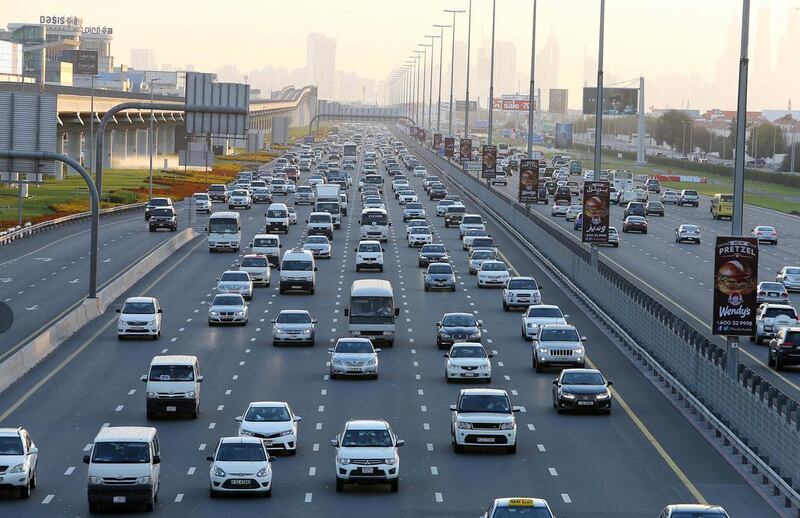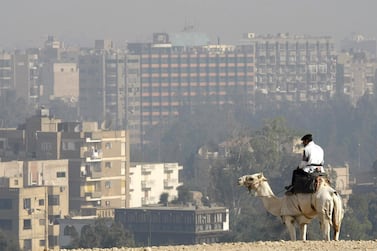Dubai will encourage flexible working hours and build more shaded walkways to improve air quality, officials said this week.
The emirate recently signed a new international agreement which will introduce policies aimed at reducing pollution. The public will also be able to view reports on the project's progress.
City chiefs are keen to urge more people to leave their cars at home and instead use bikes, footpaths or public transport.
But in an interview with The National, Samira Al Rais, senior director for sustainable development at the General Secretariat of Dubai's Executive Council, ruled out the introduction of a European-style congestion charge.
She said the authorities hoped to persuade the public to use their vehicles less with awareness campaigns and improved infrastructure rather than punitive charges.
In cities such as London, Stockholm and Milan, charging motorists in central areas during peak times has helped cut traffic and improve air quality.
Salik toll gates have been operational in Dubai since 2007, but Dr Al Rais said officials were not looking at introducing further fees.
"We are not thinking of that," said Dr Al Rais in reference to the possibility of a new central Dubai congestion charge. “We have a direction from the leadership not to increase fees for residents.
“We are supporting the economy and investment in the economy in Dubai. In addition, we want to have a happier city.”
Dubai is working towards a federal government target of achieving clean-air days 90 per cent of the time – meaning pollution remains below certain thresholds – by 2021.
Dr Al Rais said significant progress was being made, with air quality in Dubai often recorded as ‘good’ by the city's own measurements; these are published online in real-time.
However, she did not dispute less-flattering statistics, such as those in a recent report published by Greenpeace, which said Dubai was the third most-polluted Middle East city.
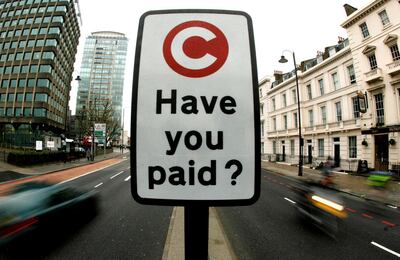
The research found that levels of PM2.5 – airborne particles of a certain size – exceeded World Health Organisation guidelines by more than five times. The tiny particles, small enough to enter the lungs and even the bloodstream, increase the risk of heart disease, stroke and cancer.
“We accept it, because if there is a fact, we accept the fact and work towards improving that,” Dr Al Rais said.
“Any resident, any visitor in Dubai can check the air quality direct from the [Dubai Municipality] website and plan the day.
“We have a good monitoring system; we have 13 fixed stations that provide continuous air quality monitoring.”
At 2.20pm on Monday, Dubai’s own air-quality network website described air in the emirate as “good”.
However, the Plume Air Report app, which has been endorsed by the Environment Agency Abu Dhabi, said there was “very high pollution” in Dubai at the same time.
The day before, Sunday October 27 at 11am, Plume said there was “extreme pollution” in Dubai. Readings can be affected by natural factors caused by the UAE’s dusty landscape, as well as man-made pollution, for example from industry or transport.
A push towards flexible working hours, thereby reducing pollution spikes caused by rush-hour traffic, could help improve air quality, Dr Al Rais said.
The move could apply to the private and public sectors and even schools. A study is being conducted by the Dubai authorities; its results and policy details are due to be unveiled next year. There are also plans for new walkways that would protect pedestrians from the heat, in addition to ongoing improvements to public transport.
“We are working now on updating our urban planning,” Dr Al Rais said. “We are focusing more on sustainable elements; part of that will be how to make the city more walkable.
"There will be more shaded areas. We have an example with Dubai City Walk [a shopping and entertainment complex with features including 'cooling walls' and shaded, outdoor areas].
“This is one of the elements. Another is to have a more connected city so, instead of using their own vehicles, people can use shared mobility, public transportation or cycle lanes.”
Seven million people die prematurely across the world every year due to air pollution, according to World Health Organisation estimates.
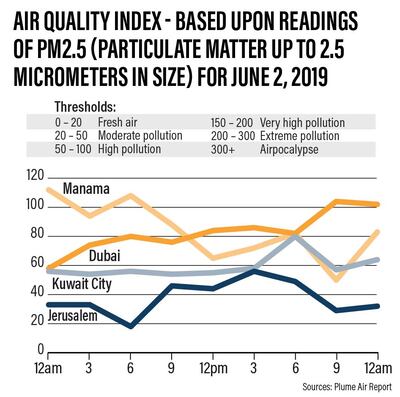
Dubai signed up to the C40 Clean Air Cities Declaration earlier this month at a summit in Copenhagen, Denmark.
It means new policies will be in place by 2025, with signatories agreeing to work towards meeting the WHO guidelines for air quality.
It was a “great joy” to see Dubai sign up to the pledge, said Habiba Al Mar’ashi, chair of the Emirates Environmental Group.
“I think this new development is reflective of how serious the UAE leadership is about upholding the commitments made in the Green Growth Strategy and to be a valuable part of international treaties like the Sustainable Development Goals,” she said.
The Green Growth Strategy was published by the federal government in 2012 to promote environmental responsibility and technologies while maintaining economic growth.
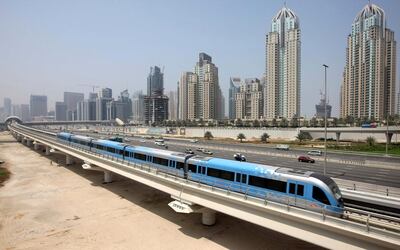
“Climate change is an issue that calls for unprecedented solutions," Ms Al Mar’ashi said. "I'm happy to see that Dubai is considering unconventional measures to improve air quality as well as more conventional measures that focus on increasing engagement with the environment.
“That a congestion charge, the likes of which has been introduced in London has been ruled out, I believe is indicative of how Dubai as a unique city will adopt unique ways to deal with this issue.”
